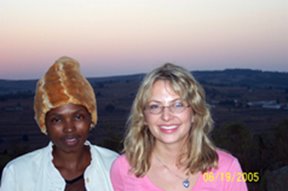 We hear a lot about water shortages around the globe. Some shortages are already occurring, others are forecast in the near future.
We hear a lot about water shortages around the globe. Some shortages are already occurring, others are forecast in the near future. This theme was discussed over and over at the Fourth World Water Forum in Mexico City in early March. The issue came up both at the official WWF meeting inside the Banamex convention center and also at the alternative water forum organized by hundreds of nongovernmetal organizations.
As was expected in a gathering this size, there was plenty of blame to go around for water shortages and the lack of clean and safe water: from globalization and privatization to global climate change, lack of foresight and irresponsibility of state and local governments to personal wasteful habits.
The bottom line is that ensuring an adequate supply of safe drinking water for everyone in the planet should be a goal for the global community. Goal 7 of the Millenium Development Goals urges governments individually and collectively to commit to to promote environmental sustainability. One target is to reduce by half the proportion of people without sustainable access to safe drinking water by 2015.
Those of us who live in the western industrialized world cannot fully comprehend what a shortage of water would look like. All we have to do is turn on the kitchen or bathroom faucet or reach for that plastic bottle in the refrigerator. We can turn on the washing machine with confidence that it will fill up with water.
Even here in New Mexico, where the reality of drought makes us think a little more about conservation, we still have easy access to water. This is not the case in many areas of the world. That's why I want to share this account from Kristin, a Peace Corps volunteer who is working in a rural community in Swaziland:
I was asked to go fetch water with Make Bhembe and Make Semalane, and was handed a 25 Liter jug like both of them. I immediately thought back to the last time I had tried carrying water on my head which was during training with a 15 Liter that wasn’t completely full.
The river was much closer then and it was still really difficult for me. We followed the winding narrow path downhill to the water hole, which was much farther than I remembered. When all our jugs were full they helped me lift it on my head, and I knew right then that I wasn’t going to make it. It was soooo heavy.
And so we started back up the hill. They walked before me with the perfect grace of all Swazi women who have done this a thousand times before, not needing to even use there hands as support, but balancing it perfectly atop their heads as we curved our way up the path.
After wobbling behind them and splashing water on myself for a couple minutes my arms, neck and head were throbbing and I was pretty sure I was either going to drop my jug or end up in a neck brace if I continued the whole way. So I stopped and tried carrying it against my chest with both my hands, making a dirty, wet mess of my shirt in the process. I could do that for about five minutes.
Finally, Make Bhembe told me to put it down, and she picked it up with one hand, still balancing the other perfectly on her head, and continued carrying our combined 50 liters with the appearance of effortless strength the rest of the way; I followed behind frustrated and embarrassed for approaching the homestead empty handed. I hated not being able to help like them, and seeming like the weak, incapable foreigner.
We made a second trip to the river and I carried a dinky 10 liter—or was it 5—the second time around with no trouble, but with the added wait of a whole lot of humility. They were kind to me and appreciated that I tried to help, and just that I was there. I was the only person that thought twice about the event.
[Kristin, who is pictured above with one of her Swazi friends, is my wife Karen's niece].
No comments:
Post a Comment